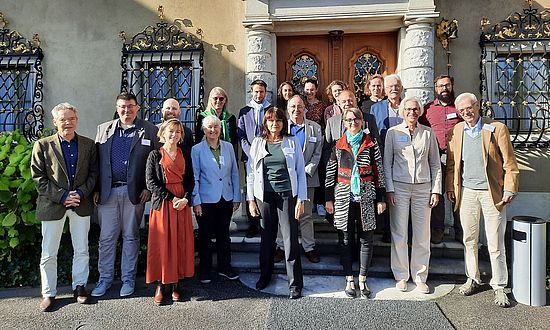
World Views – Concepts of Space and Time
People have always had to orientate themselves in space and time. Time and space are therefore elementary principles of order. Culturally variable in detail, they are ultimately always based on the perception of physical space, the landscape, and on the perception of celestial phenomena.
While prominent points in the landscape and the cardinal directions provide clues for orientation in space, the alternation of day and night as well as celestial phenomena such as the course of the sun and moon or the rising and setting of stars provide temporal orientation. While observing the sky allows for a universal way of orientation that is the same for all cultures, measuring and structuring time (for example with calendars) is variable across cultures. The same applies to the ideas of how the world as a whole, or the cosmos, is structured. Also highly variable are the ideological concepts that normatively charge culture-specific perceptions and interpretations of space and time and thus give rise to socially binding world views.
Within the framework of the CBR project, we want to shed light on the culture-specific manifestations of concepts of space and time from the perspective of various ancient studies disciplines and bring the individual results together within an interdisciplinary synthesis. In addition, the analysis of normative world views will also be a topic. In addition to the content-related aspects, the project aims to develop an interdisciplinary theory and method platform in order to research world views from multiple perspectives and using all available sources.
You can find more information about the project in our newsletter (PDF project outline) and for further information the concept group is at your disposal:
Rita Gautschy, Basel (rita.gautschy@clutterunibas.ch)
Michel Humm, Strasbourg (michel.humm@clutterunistra.fr)
Astrid Möller, Freiburg (astrid.moeller@cluttergeschichte.uni-freiburg.de)
Brigitte Röder, Basel (brigitte.roeder@clutterunibas.ch)
Quick Links
